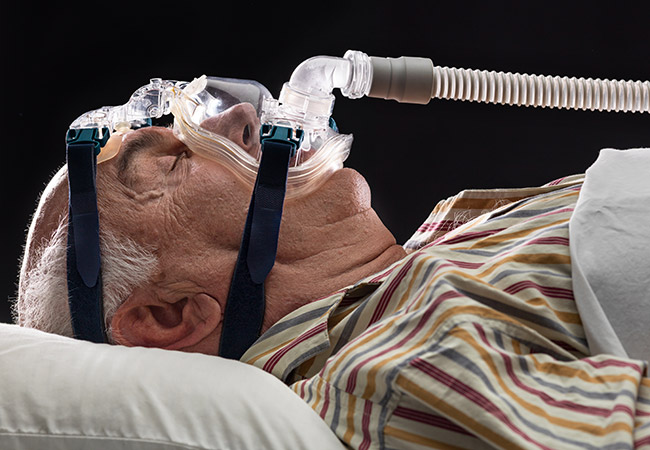Advanced Sleep Therapy - Attain Deep, Peaceful Sleep
Advanced Sleep Therapy - Attain Deep, Peaceful Sleep
Blog Article
Reliable Treatment Solutions for Handling Rest Disorders and Enhancing Relaxing Sleep
In the realm of health care, the monitoring of sleep conditions and the mission for relaxed sleep are crucial parts of total health. As we browse the detailed landscape of sleep conditions and seek to boost our sleep experience, a deeper understanding of these treatment services may hold the trick to unlocking an extra refreshing and meeting restorative journey.
Cognitive Behavior Modification for Insomnia (CBT-I)
Cognitive Behavioral Treatment for Sleep Problems (CBT-I) is an organized, evidence-based treatment method that concentrates on attending to the underlying aspects contributing to sleep disruptions. This kind of therapy aims to modify habits and thoughts that exacerbate sleeplessness, inevitably advertising healthy rest patterns. CBT-I normally involves numerous vital parts, consisting of cognitive therapy, rest limitation, stimulation control, and sleep hygiene education and learning.
Cognitive treatment aids individuals identify and change adverse thought patterns and beliefs regarding rest that might be hindering their capacity to drop or remain asleep. Sleep limitation includes restricting the amount of time invested in bed to match the individual's real sleep duration, consequently enhancing sleep effectiveness (sleep therapy). Stimulation control methods aid establish a solid organization in between the bed and sleep by urging people to go to bed only when sleepy and to stay clear of participating in stimulating tasks in bed
Additionally, sleep health education and learning focuses on creating healthy rest practices, such as maintaining a regular rest schedule, creating a relaxing going to bed routine, and enhancing the rest atmosphere. By attending to these factors thoroughly, CBT-I supplies an effective non-pharmacological intervention for handling sleep problems and improving general sleep high quality.
Rest Hygiene Practices
Having actually established the foundation of cognitive restructuring and behavior alterations in dealing with sleep problems with Cognitive Behavior modification for Sleeplessness (CBT-I), the focus now changes towards discovering crucial Rest Health Practices for preserving optimum sleep quality and total well-being.
Rest health methods encompass a variety of habits and environmental aspects that can considerably impact one's ability to drop asleep and stay asleep throughout the evening. Consistent sleep and wake times, creating a relaxing bedtime routine, and enhancing the sleep setting by maintaining it dark, silent, and cool are important components of good sleep health. Restricting direct exposure to displays prior to going to bed, avoiding energizers like caffeine near to going to bed, and participating in regular physical activity throughout the day can also advertise much better rest quality.
Furthermore, practicing relaxation techniques such as deep breathing exercises or meditation before bed can aid calm the mind and prepare the body for rest. By incorporating these rest hygiene techniques into one's everyday regimen, individuals can develop a healthy rest pattern that supports relaxed rest and general well-being.
Relaxation Strategies and Mindfulness
Applying leisure techniques and mindfulness methods can play an essential role in fostering a feeling of tranquility and advertising high quality sleep. Furthermore, guided imagery can help transport people to a tranquil place in their minds, assisting in tension reduction and improving sleep high quality.
By incorporating these techniques into a bedtime regimen, people can signify to their bodies that it is time to relax and prepare for rest. In general, integrating relaxation methods and mindfulness techniques can dramatically add to taking care of rest disorders and improving overall sleep top quality.

Medicine Options for Rest Disorders
After exploring leisure techniques and mindfulness practices as non-pharmacological interventions for enhancing sleep high quality, it is important to consider medicine alternatives for people with sleep problems. In cases where way of life modifications and therapy do not give enough relief, medication can be an important device in managing sleep disturbances.
Frequently prescribed drugs for rest problems include benzodiazepines, non-benzodiazepine hypnotics, antidepressants, and melatonin receptor agonists. Benzodiazepines, such as diazepam, are sedatives that can help cause rest, however they are generally suggested for temporary use as a result of the threat of reliance. Non-benzodiazepine sleep improvement therapy hypnotics like zolpidem are additionally made use of to deal with sleep problems and have a reduced threat of dependancy contrasted to benzodiazepines. Antidepressants, such as trazodone, can be valuable for individuals with co-occurring anxiety and rest disruptions. Melatonin receptor agonists, like ramelteon, target the body's all-natural sleep-wake cycle and can be helpful for regulating rest patterns.
It is crucial for individuals to seek advice from a medical care supplier to figure out one of the most appropriate medicine choice based upon their particular rest disorder and clinical history.
Light Treatment for Circadian Rhythm Regulation
Light therapy, also referred to as photo-therapy, is a non-invasive therapy technique utilized to manage circadian rhythms and improve sleep-wake cycles. This therapy entails exposure to bright light that simulates all-natural sunshine, which helps to reset the body's body clock. By exposing people to particular wavelengths of light, normally in the early morning or evening depending on the desired impact, light therapy can effectively readjust the body clock to advertise wakefulness during the day and enhance restful sleep in the evening.
Research has revealed that light treatment can be particularly advantageous for individuals with body clock disorders, such as postponed rest phase disorder or jet lag. It can also be handy for those experiencing seasonal depression (SAD), a type of depression that typically happens throughout the winter season when all-natural light exposure is reduced. Light therapy is normally well-tolerated and can be utilized along with other therapy techniques for sleep disorders to enhance end results and enhance total rest top quality.
Verdict
Finally, efficient therapy options for managing sleep disorders and improving relaxing rest consist of Cognitive Behavioral Treatment for Sleeplessness (CBT-I), rest hygiene practices, leisure methods and mindfulness, drug options, and light treatment for body clock law. These methods can help people boost their sleep quality and total wellness. It is vital to speak with a health care company to identify one of the most ideal method for resolving rest concerns.
As we navigate the complex landscape of sleep conditions and look for to boost our sleep experience, a much deeper understanding of these treatment services may hold the secret to opening a much more rejuvenating and satisfying restorative journey.
Rest constraint involves limiting the quantity of time invested in bed to match the person's actual sleep duration, thus enhancing sleep efficiency. Constant sleep and wake times, developing a relaxing going to bed regimen, and optimizing the sleep environment by keeping it dark, peaceful, and cool are important elements of excellent sleep health. Light therapy is usually well-tolerated and can be made use of in conjunction with other treatment techniques for rest conditions to enhance end results and enhance general sleep quality.

Report this page